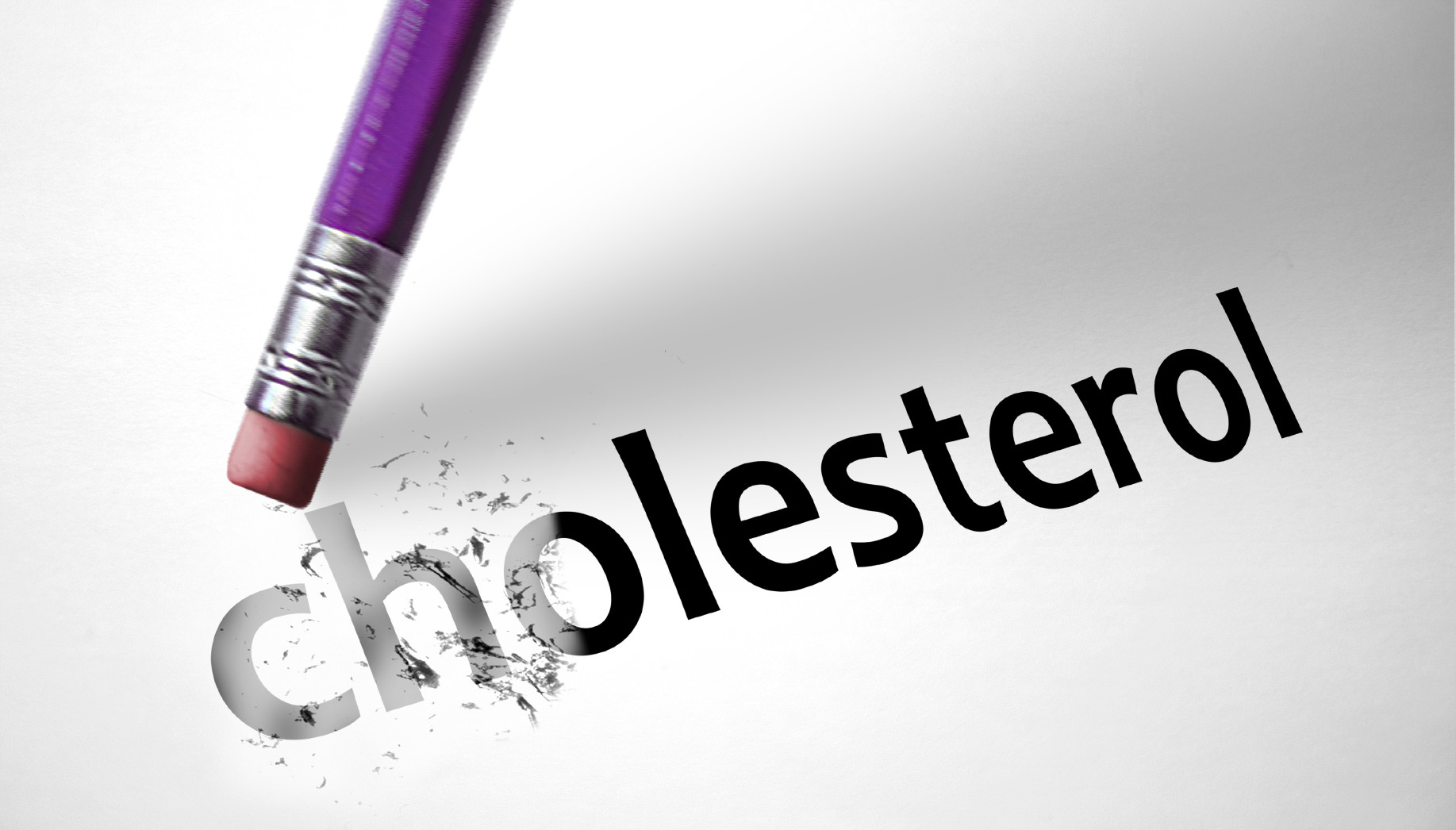
Daily cup of coffee may prevent afib recurrence

Gene-editing therapy lowers harmful blood fats in early study

What is EMDR therapy, and who can it help?

GLP-1 drugs versus bariatric surgery for treating obesity

Trying to lose weight? Be careful not to lose muscle

Two dumbbells, three exercises, and 10 minutes

Easing the emotional burden of IBS

Modify your push-ups to meet your fitness level

What is long QT syndrome?

Stroke survivors may benefit from very low LDL levels
Harvard Health Blog
Read posts from experts at Harvard Health Publishing covering a variety of health topics and perspectives on medical news.
Articles
The Department of Defense wages war on prostate cancer
Active and retired servicemen with prostate cancer can get access to clinical trials, experimental therapies, and state-of-the-art care through the Department of Defense’s Center for Prostate Disease Research (CPDR).
Fourth of July grilling tip: Check for stray bristles after cleaning with a wire brush
Like millions of Americans, I plan to fire up the grill today for a Fourth of July cookout. But I’ll be adding an extra step to my routine: checking the grate for bristles that may have fallen off my cleaning brush. An article in this week’s Morbidity and Mortality Weekly Report describes six people injured by consuming grill-cleaning bristles hidden in grilled meat. Three had abdominal pain from wire bristles poking through the small intestine or colon. Three others had bristles stuck in the neck. All of the wire bristles were safely removed with open surgery or laparoscopy (“keyhole” surgery). The same team had published a report of six other cases earlier this year in the American Journal of Roentgenology. Twelve cases from one medical center over a three-year period does not an epidemic make. But it’s enough to suggest that ingesting wire bristles happens wherever home grilling is going on. Keep your grill bristle free by using a brush that’s in good shape. After you use a brush to clean your grill rack, use a towel or wadded up bunch of paper towels to wipe it down.
Dissolvable tablets don’t work for people with severe allergies to grass pollen
People with allergies to grass pollen may have cheered last year when the FDA approved a no-needles treatment —a daily tablet you dissolve under your tongue. These tables deliver low doses of grass pollen to the bloodstream. This is done to “teach” the immune system not to wage war on grass pollen. It turns out that these tablets don’t work that well. An analysis of 13 controlled clinical trials indicates that dissolvable tablets are only slightly more effective than placebos in curtailing classic symptoms of grass pollen allergy—runny nose, itchy eyes, and tickly throat. To make matters worse, more than 60% of people who used the tablets experienced irritating side effects.
Use sunglasses for vision protection starting at an early age
When kids pack for summer camp, sunglasses may not always top the supply list. But I made them a priority for my 12-year-old son Carson, who just started rowing camp in Florida, because eyes are vulnerable to damaging ultraviolet rays, which are especially intense near reflective surfaces. Ultraviolet rays can damage the eyes several way, ultimately leading to cataract, glaucoma, macular degeneration, and other thieves of vision. You don’t have to spend a bundle to get a good pair of sunglasses. Just make sure to pick ones that block close to 100% of ultraviolet A and ultraviolet B (UVA and UVB) rays.
How much protein do you need every day?
Wondering how many grams of protein to have per day? The answer may surprise you. Discover the recommended daily protein intake and how to calculate it here.
The long goodbye: FDA ruling will eliminate trans fats from U.S. foods
Partially hydrogenated oils, once a workhorse of the food industry, have gotten an official heave-ho from the U.S. food supply. In a long-awaited decision, the FDA ruled yesterday that partially hydrogenated oils, which are the main source of harmful trans fats, are no longer “generally recognized as safe.” That means any food company wanting to use partially hydrogenated oils must get the FDA’s approval to do so. Companies have until 2018 to stop using partially hydrogenated oils or to petition the FDA for approval. The move is a good one for individual and public health. Trans fats have been a favorite of the food industry because they increase the shelf life of liquid oils and make margarine easier to spread. But trans fats are bad for arteries. Removing them from the U.S. food supply would prevent between 72,000 and 228,000 heart attacks each year.
Sweet dreams: eating chocolate prevents heart disease
If you’re a chocoholic, the news out of England is tantalizing: middle-aged and older adults who eat up to 3.5 ounces of chocolate a day (that’s more than two standard Hershey bars) seem to have lower rates of heart disease than those who spurn chocolate. At least that was the conclusion of a study that followed the health of nearly 21,000 resident of Norfolk, England, for 11 years. Most of the previous studies on the chocolate-heart connection found that only dark chocolate offered any cardiovascular protection. In the Norfolk study, any type of chocolate, including milk chocolate, seemed to have the same beneficial effect. I routinely write my patients a prescription for exercise, and sometimes for eating more vegetables and fruits. I won’t be writing any prescriptions for chocolate in the foreseeable future. But I won’t be telling them not to eat chocolate—in moderation of course.
Ticks can transmit a new Lyme-like disease
There are several good reasons to keep ticks off your body. One is that they are creepy and suck your blood. Others are the 14 diseases they are known to transmit. A report published online this week in the Annals of Internal Medicine describes the newest tick-borne disease in North America, which is caused by a bacterium known as Borrelia miyamotoi. This spiral-shaped bacterium is related to the one that causes Lyme disease. Like Lyme disease, Borrelia miyamotoi disease is spread by small, hard-bodied deer ticks. Infection with Borrelia miyamotoi often causes a recurring fever, as well as headache, muscle aches, and chills. It does not usually cause the “bull’s eye” rash seen in some people with Lyme disease. According to the Annals report, nearly one-quarter of people diagnosed with Borrelia miyamotoi disease are so sick they need to be hospitalized. The best therapy so far is the oral antibiotic doxycycline. Experts aren’t sure how common Borrelia miyamotoi disease is because it isn’t on doctors’ radar screens, and because some people who develop it never see a doctor.
Cognitive behavioral therapy offers a drug-free method for managing insomnia
Many people with insomnia turn to sleeping pills, which often have unwanted side effects. Few of them know about an equally effective therapy that targets the root cause of insomnia without medications. Called cognitive behavioral therapy for insomnia, or CBT-i, this short-term talk therapy teaches people to change the unproductive thinking patterns and habits that get in the way of a good night’s sleep. While this therapy can’t “cure” insomnia, it does provide tools to better manage it. In a review article in this week’s Annals of Internal Medicine, researchers found that people treated with CBT-i fell asleep almost 20 minutes faster and spent 30 fewer minutes awake during the night compared with people who didn’t undergo CBT-i. These improvements are as good as, or better than, those seen in people who take prescription sleep medications such as zolpidem (Ambien) and eszopiclone (Lunesta). And unlike medications, the effects of CBT-i last even after the therapy ends.
Oral appliances may work for mild but not severe sleep apnea
The search for an effective, easy-to-use treatment for sleep apnea has been going on for years. The gold standard is a breathing machine known as continuous positive airway pressure (CPAP). A report published online this week by JAMA Internal Medicine describes a mouth-guard-like device that may work for people with mild sleep apnea, but that may not be much help for those with severe sleep apnea. The 18 million Americans with obstructive sleep apnea sufferers are a powerful incentive for device manufacturers, and there are myriad alternatives to CPAP in the marketplace and under development. Swedish researchers tested a custom-fitted mandibular advancement device among people with self-reported sleep apnea. It worked, but a placebo device worked almost as well.
Tight blood sugar control in type 2 diabetes linked to fewer heart attacks and strokes
Diabetes damages every part of the body, from the brain to the feet. High blood sugar, the hallmark of diabetes, wreaks havoc on blood vessels. It makes sense that keeping blood sugar under control should prevent diabetes-related damage — but how low to push blood sugar is an open question. A study published in The New England Journal of Medicine (NEJM) provides reassuring evidence that so-called tight blood sugar control is good for the heart and circulatory system. A 10-year follow-up of the Veterans Affairs Diabetes Trial showed that participants who aimed for tight blood sugar control had lower blood sugar and fewer heart attacks and strokes than participants whose blood sugar was allowed to float a bit higher. Although tight blood sugar control can help prevent diabetes-related damage, it can have drawbacks such as bouts of low blood sugar (hypoglycemia), which can be dangerous. Current guidelines from the American Diabetes Association recommend tight blood sugar control, but also recognize there’s no one-size-fits-all rule.
Combination of a cholesterol-lowering statin and ezetimibe lowers risk of a heart attack or stroke
High cholesterol is a key culprit in the development of cardiovascular disease, the leading cause of death in the United States and many other developed countries. We know that lowering cholesterol helps prevent heart attacks and strokes. But an unanswered question remains: how low should you go? New research published online today in The New England Journal of Medicine suggests that lower is better. In a large clinical trial, participants who took a cholesterol-lowering statin plus ezetimibe, a different type of cholesterol-lowering drug, had lower levels of harmful LDL cholesterol and experienced fewer heart attacks and strokes than participants taking a statin alone. The new findings provide a strong rationale for using ezetimibe when a statin alone isn’t enough.
Report proposes new “vital signs” to measure the nation’s health
Doctors use vital signs as a relatively straightforward way to detect an illness or monitor a person’s health. Key ones include blood pressure, body temperature, breathing rate, and heart rate. A report from the newly christened National Academy of Medicine (formerly the Institute of Medicine) proposes using 15 “vital signs” to track how health care in the United States measures up. These include life expectancy, well-being, access to care, patient safety, evidence-based care, and others. Why bother creating such a list? Health care costs in the U.S. are the highest in the world, yet people in many countries that spend less on health care are in better health overall and have better health care outcomes. In order to improve the performance of health care, we need to measure how it is doing in a logical, sustainable way. These vital signs will help us answer questions about what we are doing well and where we must improve.
Can hospice care reduce depression in the bereaved?
Hospice care improves quality of life in the dire circumstances of a person’s last days. It can enable the dying to spend this time in peace, surrounded by family and friends, and in little pain. Studies confirm what many know intuitively. Family members are likely to experience major depression following the loss of a loved one. A recent study published in today’s online JAMA Internal Medicine looked at whether hospice care reduces the severity of bereavement-related depression in people who had recently lost a spouse. While the researchers saw no difference between spouses whose partners were enrolled in hospice and those how weren’t, major depression was less common in spouses who received support from a hospice program.
New hospital ratings evaluate delivery of “typical care”
For the past 25 years, US News and World Report has been listing the “best hospitals” in the United States. In a Viewpoint article in this week’s JAMA, the magazine’s top health analysts describe how they are expanding and changing the way they rate hospitals. The current ratings aren’t designed for use by patients in need of typical hospital care. That’s changing. The US News team has spent more than a year analyzing more than 5 million patient records regarding more than a dozen common procedures and medical conditions from more than 4,300 hospitals. Ratings for five of these — hip replacement, knee replacement, coronary artery bypass surgery chronic obstructive pulmonary disease, congestive heart failure — were published online today. The new ratings use only performance measures such as patient safety, technology, and survival rates after admission. Keep in mind that ratings like these can help, but they’re mostly limited to data, and aren’t the whole picture. Other organizations also provide hospital rankings and ratings.
Grip strength may provide clues to heart health
A strong or weak hand grip carries more than just social cues. It may also help measure an individual’s risk for having a heart attack or stroke, or dying from cardiovascular disease. As part of the international Prospective Urban and Rural Epidemiological (PURE) study, researchers measured grip strength in nearly 140,000 adults in 17 countries and followed their health for an average of four years. Each 11-pound decrease in grip strength over the course of the study was linked to a 16% higher risk of dying from any cause, a 17% higher risk of dying from heart disease, a 9% higher risk of stroke, and a 7% higher risk of heart attack. Interestingly, grip strength was a better predictor of death or cardiovascular disease than blood pressure. What’s the connection? It’s possible that grip strength measures biological age.
Draft recommendations on screening mammography continue to stir debate
The release of new guidelines on mammography never fails to renew the heated controversy over the potential benefits and harms of this procedure. The latest draft guidelines from the U.S. Preventive Services Task Force (USPSTF) are no exception. The USPSTF recommends that women begin having mammograms at age 50 and stop at age 75. (The American Cancer Society and other medical organizations recommend that women begin getting regular mammograms at age 40.) The draft recommendations say there isn’t enough evidence to recommend or discourage the use of a new technique called 3-D mammography for screening, and also say there isn’t enough evidence to recommend that women with dense breasts, who are at higher risk of breast cancer, should have an ultrasound or MRI in addition to screening mammography. Comments can be made on the USPSTF draft until 8:00 pm Easter Time today. A final version of the recommendations is expected to be released in the fall of 2015.
Surgery still trumps “antibiotics first” approach to appendicitis
When appendicitis strikes, an operation to remove the appendix has long been the route to recovery. But a new strategy called “antibiotics first” could help some people avoid surgery for appendicitis. A clinical practice article in today’s New England Journal of Medicine explores the idea of antibiotics first for appendicitis. The main advantage is that it could eliminate the need for surgery in some people with appendicitis. The drawbacks are that it leaves open the possibility of repeat bouts of appendicitis, with an appendectomy still down the road. It could also lead to lingering symptoms and a sense of uncertainty that could affect quality of life. Although immediate surgery is the standard of care for appendicitis, an antibiotics first approach could be appropriate now for individuals who prefer not to have surgery, aren’t healthy enough for surgery, or aren’t near a medical center that routinely does laparoscopic appendectomy.
Mediterranean diet may help counteract age-related declines in memory and thinking skills
Can a Mediterranean-type diet with extra servings of nuts and extra-virgin olive oil help protect memory and thinking skills with age? A study in this week’s JAMA Internal Medicine suggests that it might. The findings come from a small substudy done as part of the PREDIMED trial, which showed that a Mediterranean diet supplemented with extra-virgin olive oil or nuts reduced heart attacks, strokes, and other cardiovascular problems among people at high risk for them. Although the results of the new PREDIMED study are promising, its small size and the fact that it wasn’t designed to look at connections between diet and brain health mean the results need to be taken with a grain of salt. That said, since there’s no downside to following a Mediterranean diet, an added bonus beyond great taste could be protecting memory and thinking skills.
Environmentally friendly inhalers double the cost for people with asthma
Environmentally friendly asthma inhalers may be good for the atmosphere, but they have nearly doubled what people with asthma are paying out of pocket for their inhalers. That’s the take-home message from a study led by Dr. Anupam Jena, an assistant professor of health care policy and medicine at Harvard Medical School and an internist at Massachusetts General Hospital. The findings were published online today in JAMA Internal Medicine. In 2008, the FDA banned a class of asthma inhalers that contained ozone-depleting propellants called chlorofluorocarbons (CFCs). The switch to CFC-free inhalers has led to an average increase of $10 per inhaler prescription, which has effectively doubled their cost.

Daily cup of coffee may prevent afib recurrence

Gene-editing therapy lowers harmful blood fats in early study

What is EMDR therapy, and who can it help?

GLP-1 drugs versus bariatric surgery for treating obesity

Trying to lose weight? Be careful not to lose muscle

Two dumbbells, three exercises, and 10 minutes

Easing the emotional burden of IBS

Modify your push-ups to meet your fitness level

What is long QT syndrome?

Stroke survivors may benefit from very low LDL levels
Free Healthbeat Signup
Get the latest in health news delivered to your inbox!
Sign Up

























